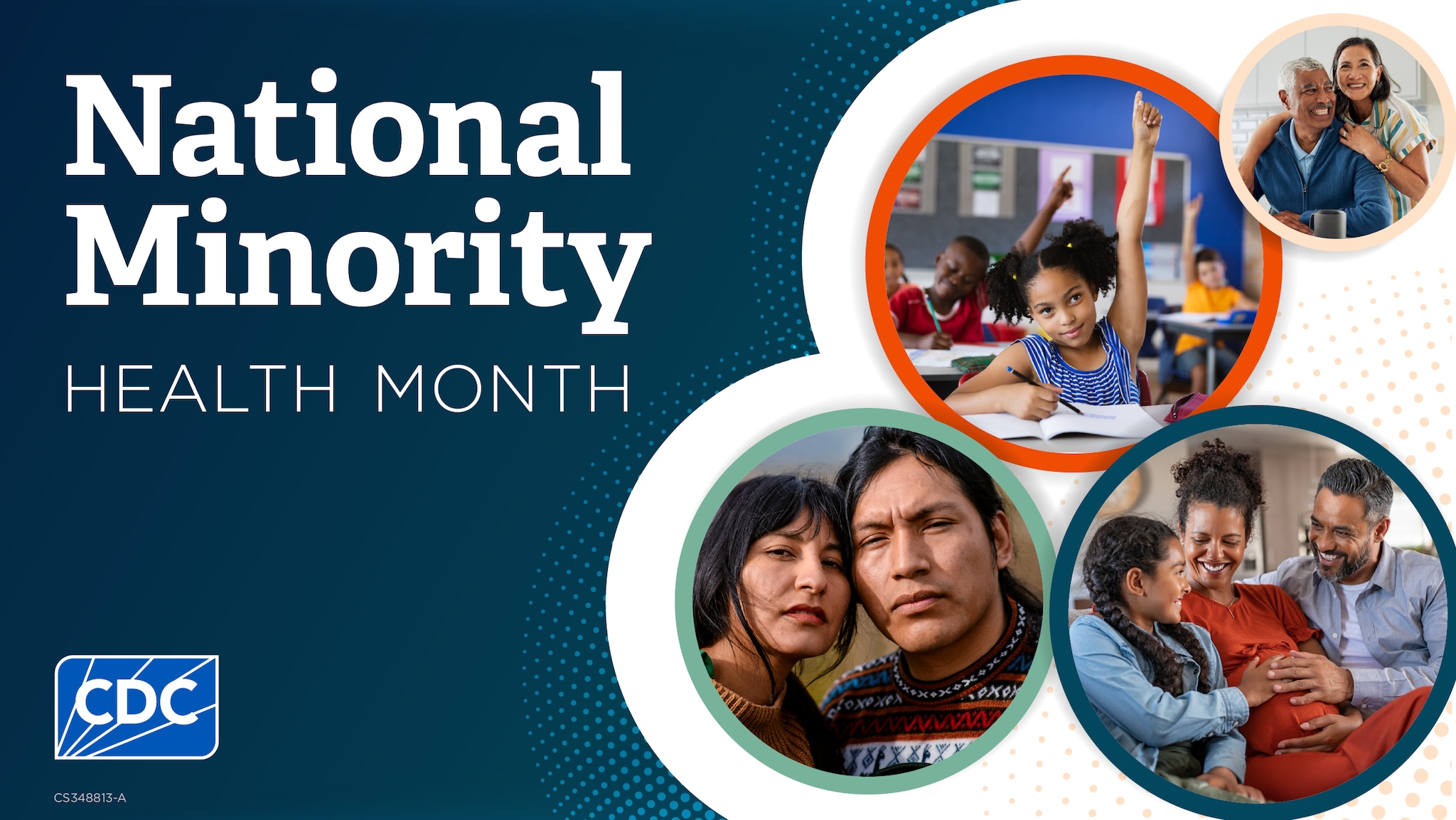CDC Highlights National Minority Health Month
Per the notice below, the Centers for Disease Control and Prevention (CDC) is highlighting National Minority Health Month.
Be the Source of Better Health! Improving Health Outcomes Through Our Cultures, Communities, and Connections

This April, celebrate National Minority Health Month (NMHM) by being the source of better health. NMHM is a time to raise awareness of the importance of improving the health of people in racial and ethnic minority communities. This year’s theme focuses on understanding how our cultures, communities, and connections impact our overall health. Learn more about social determinants of health (SDOH) and take action within your communities to Be the Source for Better Health! CDC recognizes NMHM as an opportunity to bring attention to health inequities and what we are doing address health disparities. A March 2024 Morbidity and Mortality Weekly Report shows how social and economic conditions impact health and health care in the U.S. Understanding disparities in SDOH and health-related social needs among populations is essential to determining strategies toward advancing health equity.
Working Together to Address Disparities
CDC’s Office of Health Equity (OHE) launched a Webinar series featuring topics that address emerging public health issues, health equity research, communication, and training. This series showcases the power of partnerships to help reduce health disparities and advance health equity. Through the Webinar series, we have shared best practices to improve health equity communication materials, practical applications from the Principles of Health Equity Science for Public Health Action, and explain the importance of equitable data practices for various population demographics. Everyone can play a role in reducing health disparities. A few key highlights from the series:
- “Deploying culturally and linguistically appropriate information to Latino communities through multimedia channels” has helped inform communities, build trust and confidence in vaccines, fight misinformation, and increase vaccine access in Latino communities.
- “Disability is an intersectional issue that affects all communities, including already marginalized communities, and has the power to unite diverse identities and lived experiences.”
- “Equity in health communications goes beyond translating documents into multiple languages. [It includes] making sure that content is culturally and linguistically appropriate and relevant for the focus population and scripted in a language or format that is relevant and relatable [which] is sometimes missed if we don’t have the right voices at the table.”
Read more about these highlights in the Conversations in Equity blogs.
Progress in Advancing Health Equity
Launched in 2021, CORE is CDC’s umbrella framework to transform our work by incorporating health equity and diversity, equity, inclusion, accessibility, and belonging as a foundational element across all of its work and partnerships. CORE demonstrates how we’ve put Health Equity in Action through collaboration with communities and partners to improve health outcomes. Learn about more accomplishments on a new webpage highlighting the progress and impact CDC has made in advancing the science and practice of health equity.
Connect with OHE
Stay up to date on the latest news and activities by visiting OHE’s web page, connecting with us on social media, and subscribing to our newsletters.
Additional Health Equity Resources
- Three Principles to Communicate about Health Equity Concepts – This resource offers public health professionals three evidence-based principles with tangible strategies to clearly and effectively communicate about health equity concepts with diverse audiences.
- Health Equity in Action – Highlighted projects CDC and CDC-funded projects that use culturally appropriate methods to reduce health disparities and advance health equity.
- Health Equity Fact Sheet – Activities and examples of achievements and advancements as a result of our commitment to embedding health equity into our overall approach.
- Health Equity Guiding Principles for Inclusive Communication – These principles are intended to help public health professionals, particularly health communicators, within and outside of CDC ensure their communication products and strategies adapt to the specific cultural, linguistic, environmental, and historical situation of each population or audience of focus.
- Health Equity Video Series – A series of short informative videos on the topics of health equity, social determinants of health, racism and health, and intersectionality.

